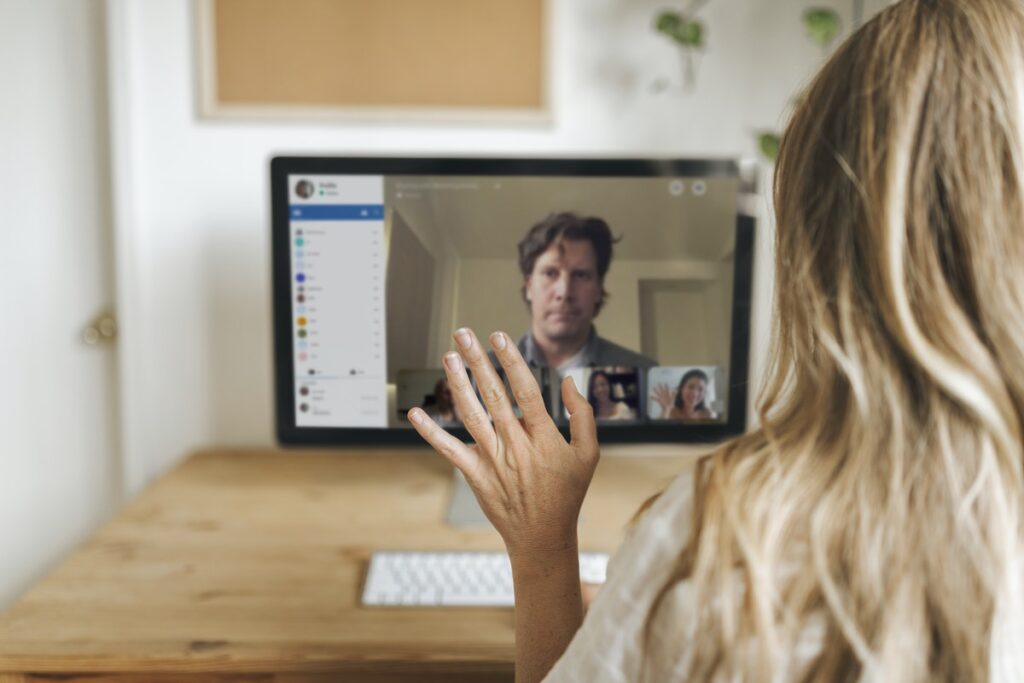
Just as we packed our work bags, donned a tie for the first time in months, steeled ourselves for the commute and kissed our partner goodbye, the news came in; government encourages Brits to work from home, again. We’d almost made it to Pret for our pre-work croissant, but a quick heel turn, and we retreated home to hastily reassemble our kitchen table office.
Many workers aren’t so lucky to have this luxury, with a physical presence necessary to get the job done and oppressive employers putting the heat on staff to return to work regardless of the risk. Such uncertainty and pressure are, of course, going to cause inevitable worry. This is a turbulent time, but rest assured, there are tools available to help lighten the load somewhat. With that in mind, here’s how to handle back to work anxiety in 5 IDEAL steps.
PRECISION PLAN YOUR JOURNEY
It’s the uncertainty which kills us. And let’s face it; the ebb and flow of traffic and train rides in the capital can be some of the most unpredictable around. You can only expect one thing; chaos. Even with distancing measures loosely in place, the tubes are still busy, so it’s prudent to plan your journey closely to take the mental load off a little each morning and evening.
Do remember that a face mask is now compulsory on trains unless you are exempt, and it’s a good idea to carry hand sanitiser, too. Try to travel at quieter times if possible by looking first online and assessing live updates for busier stations, such as Clapham Junction, Waterloo, Victoria and Kings Cross trains, to check trains are running properly and delays aren’t causing additional issues. In general, quieter times occur between 8:15am and 4pm, and after 5:30pm, on weekdays.
If anxiety levels are running particularly high, consider consulting with your employer about working different hours to avoid the crowds. In such turbulent times, some flexibility from your work should be expected…

SPEAK TO YOUR BOSS
Speaking of which, it is usually productive to let your boss know that you are feeling anxious about returning to the office. They will be able to reassure you regarding the steps they have taken to make your place of work a COVID-secure environment which should help to alleviate any concerns.
Should your employer be inflexible about the issues you present, then you should remind them that they may be breaking the law. You could also do worse than pointing them in the direction of this useful article on ways to encourage a productive working environment. Disclaimer: it was written by us.
CONSULT WITH CO-WORKERS
There is power in the union, so, join one. Should this not be feasible, then ‘strength in numbers’ is still incredibly powerful at work, so it’s certainly worth speaking to your co-workers as it is likely that there will be at least one other person feeling nervous; a problem shared is a problem halved for you, and a problem doubled for that pesky boss of yours. With collective pressure, you can enact change within your employer’s policies, and also provide invaluable support and a sense of community in the face of uncertain, unprecedented times.
Be aware that most people suffering from anxiety ‘’meet the definition of disability in the Equality Act (2010) and the Disability Discrimination Act (1995, as amended). This means that people with mental health problems are protected from discrimination and harassment and are entitled to reasonable adjustments to adapt their job or work’’, according to the Mental Health Foundation. This means you should expect your workplace to support you without judgment.

REWARD YOURSELF
It may sound a little simple – flippant, even – but a great way to reduce anxiety in any given situation is to give yourself something to look forward to which will help you to stay positive and focused during the day.
No one gets the most from life with an empty calendar. Instead, reward yourself for getting through this deeply challenging time. This could be anything such as buying new clothes, treating yourself to a takeaway or going out for a few drinks with friends after work; don’t let the ascetic gods guilt trip you!
BREATHING EXERCISES
Another widely deployed method in reducing anxiety is to learn and utilise a few breathing exercises when times get tough or overwhelming. These can be used in situations where you might be feeling anxious, such as on the train or when you walk into the office for the first time; fortunately, there’s plenty of advice online about the most helpful methods. We’re big fans of guided meditation apps, which give you the tools to tackle stressful situations with confidence. Do give them a go.
*This article is not intended to replace medical advice, diagnosis or treatment given by a qualified health professional. Instead, this article only provides information, not advice. For any medical enquiries, always consult your GP first*





